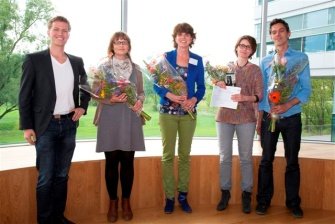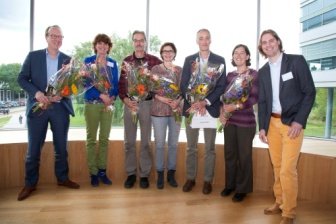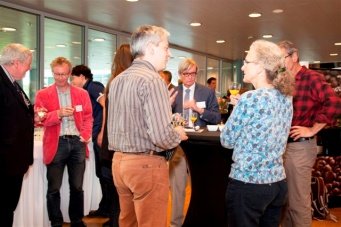Education seminar
Education seminar: 21st century skills in Life Sciences & Valedictory lecture Prof. Dop Bär
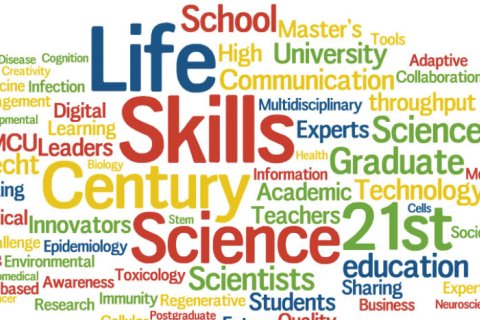
On Friday June 19th, 2015 more than 120 life scientists participated in the fourth biannual education seminar organised by the Graduate School of Life Sciences. The theme of this edition was ‘21st Century Skills in Life Sciences’ in which we wanted to discuss what 21st century skills are and wanted to answer the questions: What are the skills that future Life Scientists need? How should we educate our Master’s students? In addition, the 2015 winners of the best MSc and PhD course of the Graduate School of Life Sciences were announced.
The seminar was kicked off by keynote speaker dr. Tony Wagner, Doctor of Education, who connected with the Utrecht University hall from Harvard University live via video conference. Dr. Wagner gave an inspirational talk about what we should do to develop the capabilities of young people to become innovators. His experience and research showed that we should keep the passion of curiosity alive and teach the principles of: play, passion and purpose. The lecture was followed by a fruitful discussion with the audience via the two-way live stream.
After the keynote lecture, the award ceremony for best GSLS Master’s and PhD course of 2015 took place. Rebecca Stellato, MSc won the award for best Master’s course for 'Mixed Models' from the Master’s programme Epidemiology. The ‘Van Kinsbergen’ course coordinated by Dr. Edward Knol, from the Infection and Immunity programme, was awarded best PhD course.
The seminar was continued by dr. Hanno Cappon and concluded with a lecture from prof. Marian Joëls. Dr. Cappon, vice-president R&D Medical Nutrition at Danone, explained what Danone as a company needs of Life Scientists within R&D. When Master’s students graduate from the GSLS, Danone trusts that students have depth of technical expertise and scientific knowledge. However they also look for students with good developed soft skills. Prof. Joëls closed the seminar using examples from academia, which illustrate that nowadays, scientists need to be versatile and willing to walk many different paths during their careers. She argued that the ‘beaten path for a scientist’, which many students still envision for their own future, is really only attainable for a few of them. As a consequence, the skills in the 21st century a life scientist needs are changing and education should adjust accordingly.
The seminar was followed up by the valedictory lecture of prof. Dop Bär, entitled: Onder Wijzen. Prof. Bär gave us an overview of his career, touching on various subjects he thoughtwere the most important steps he made during his time as Programme Director Biomedical Sciences within the GSLS. If you missed it, his lecture was recorded and can be seen here (only in Dutch).
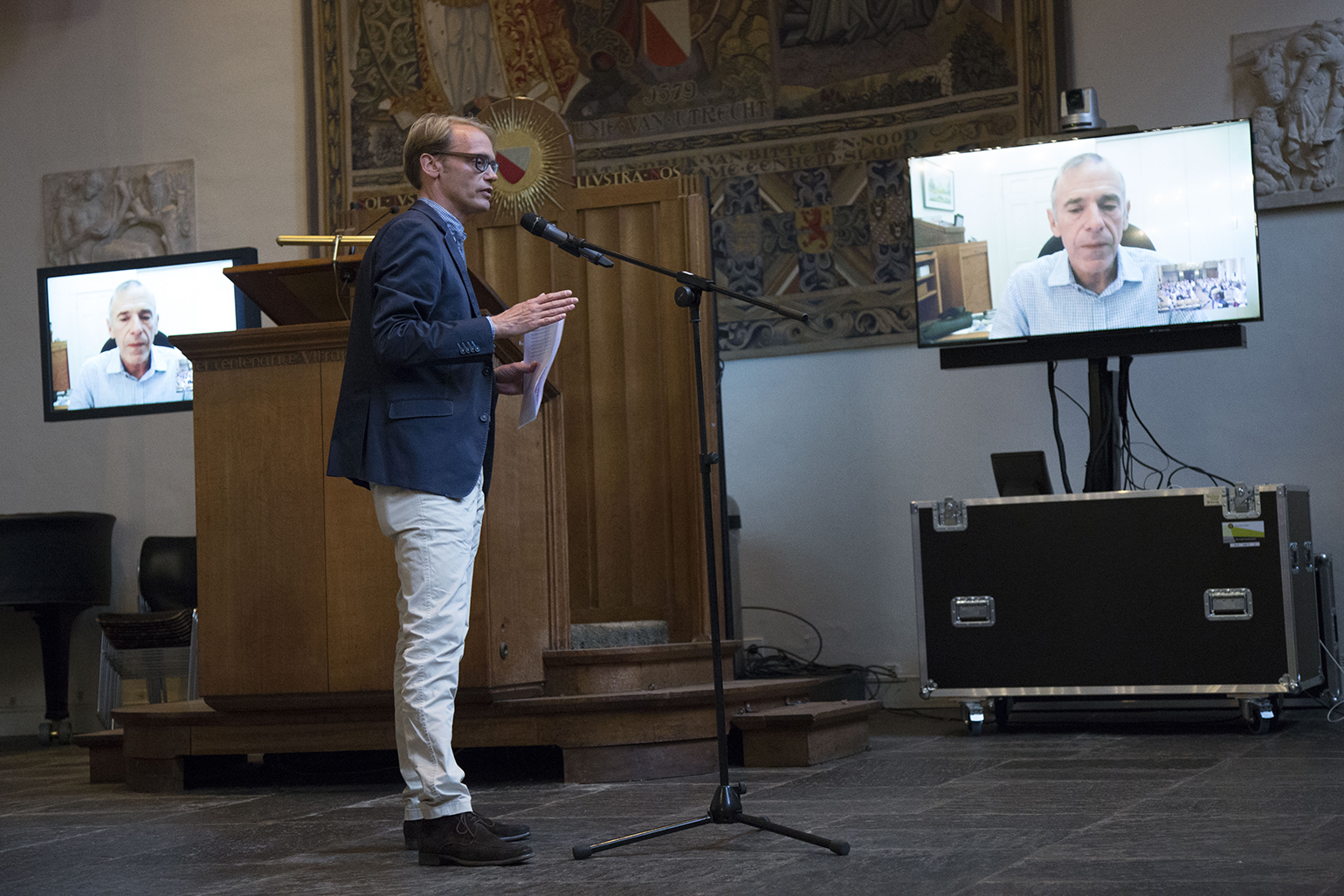
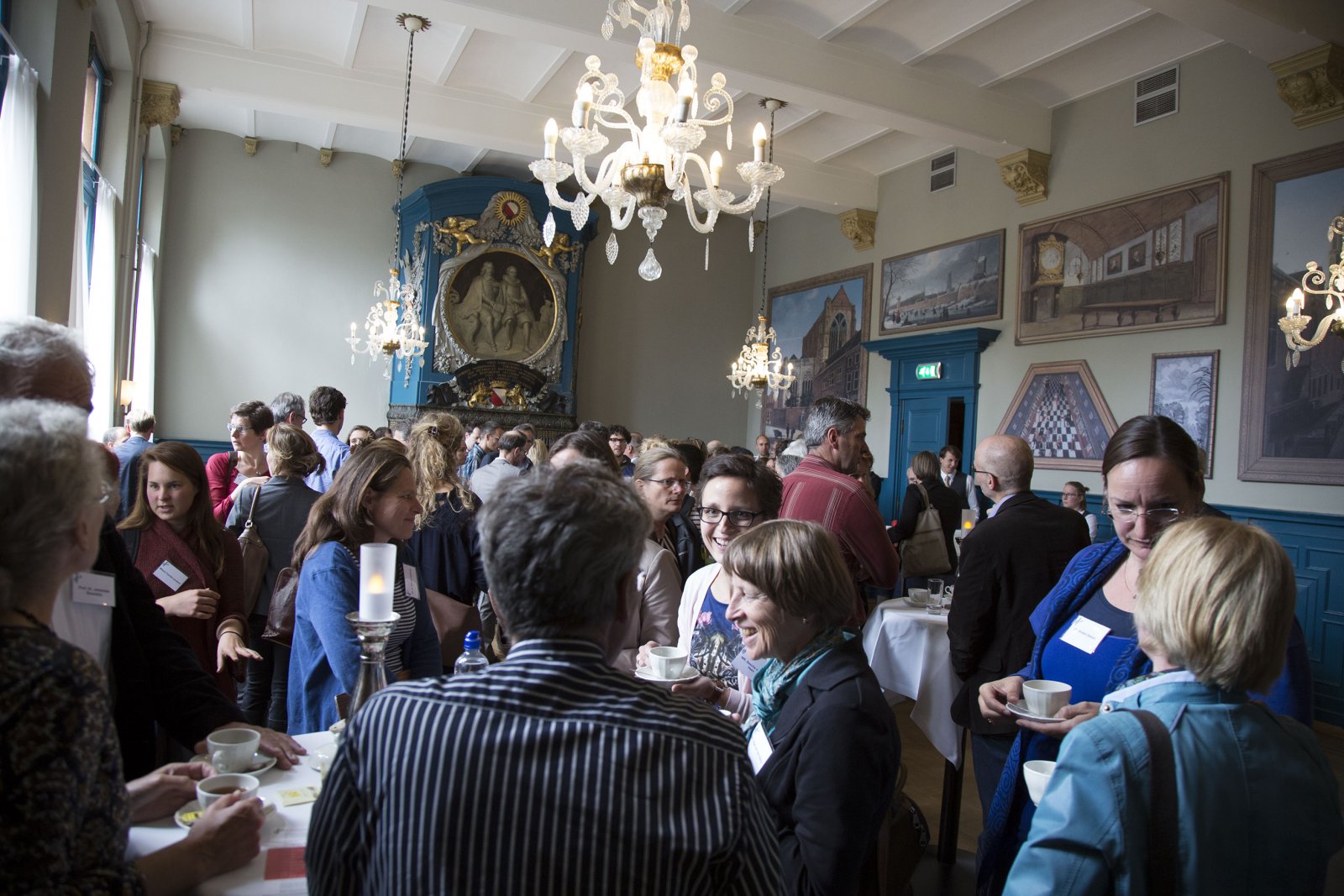
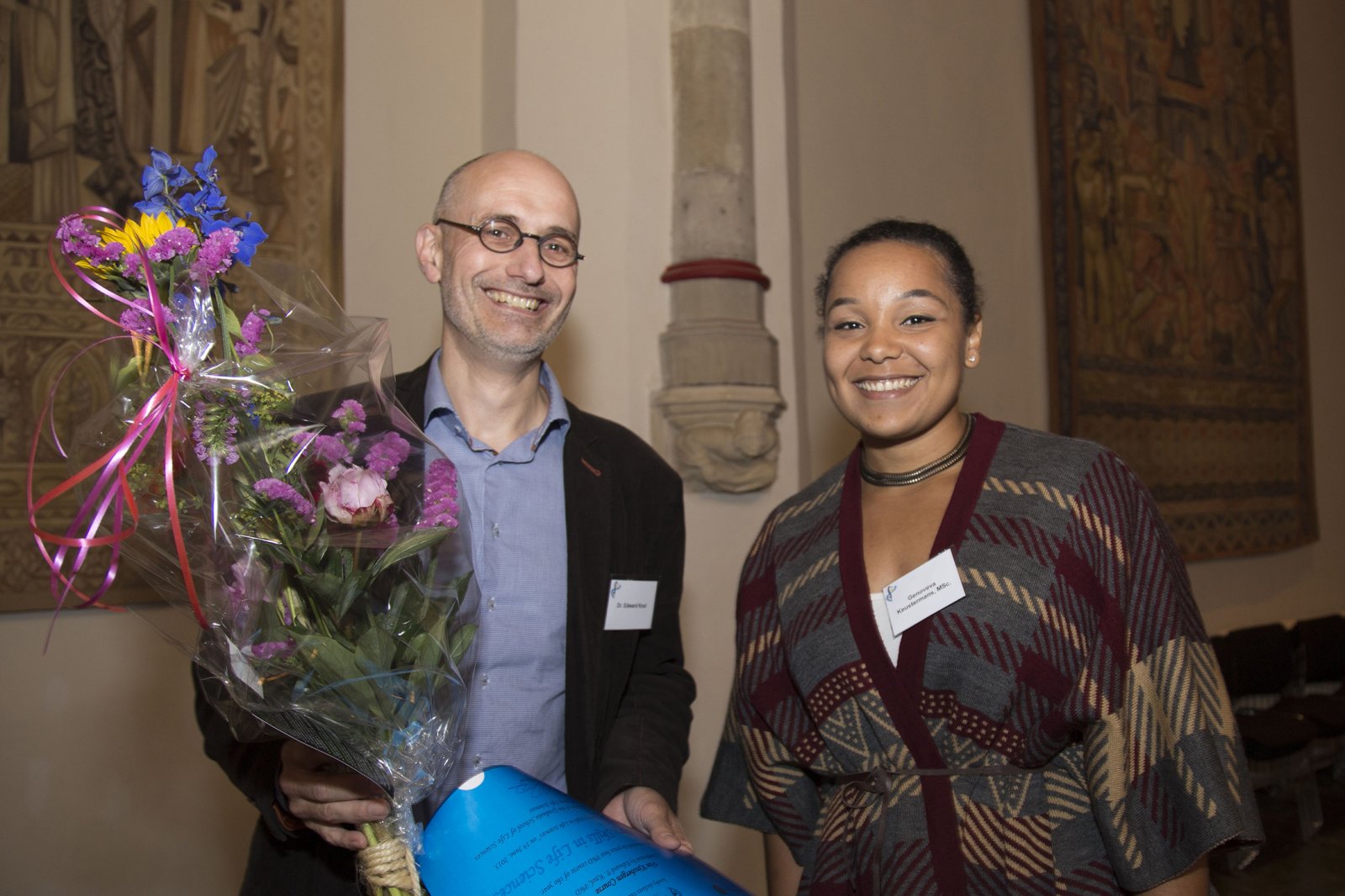
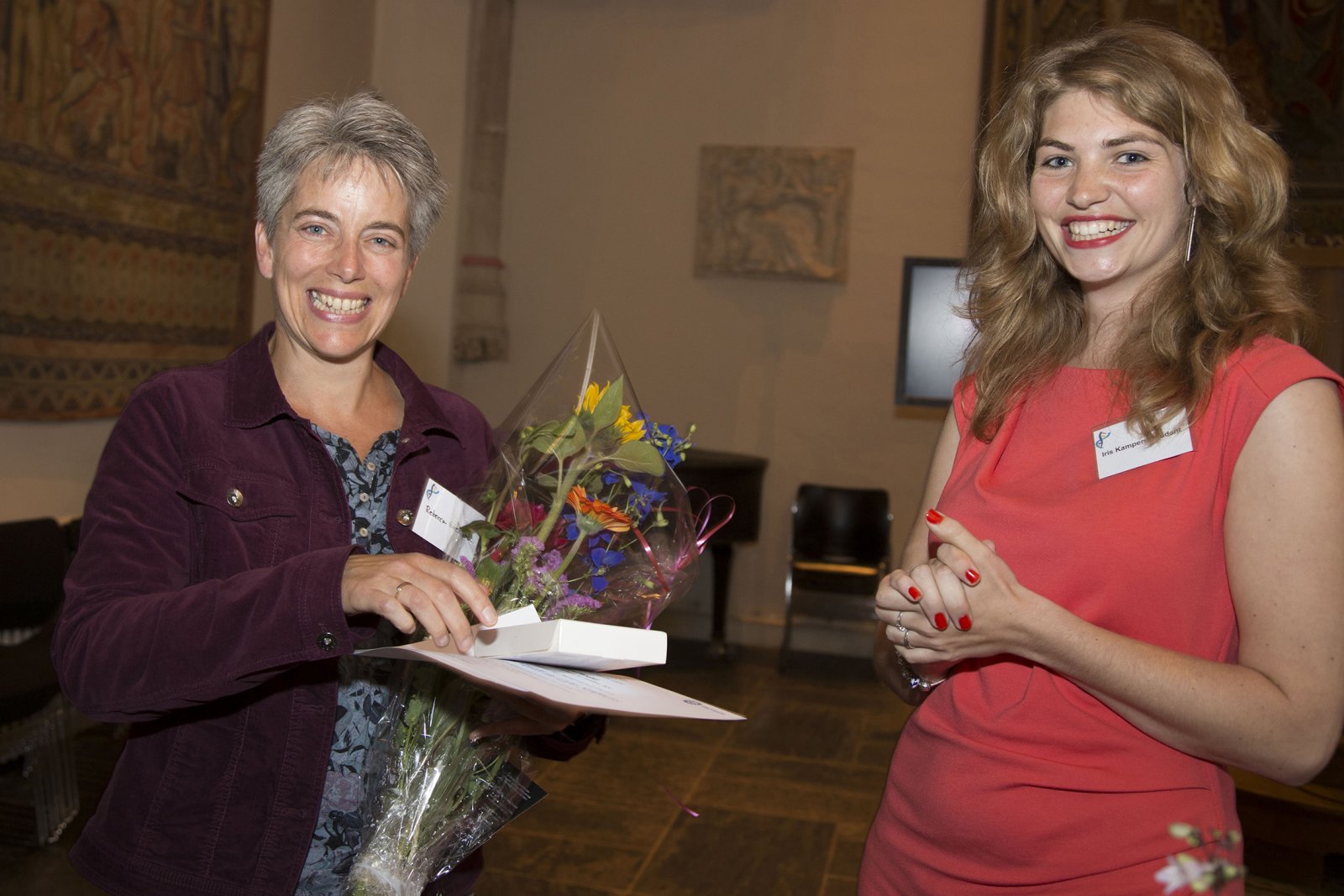
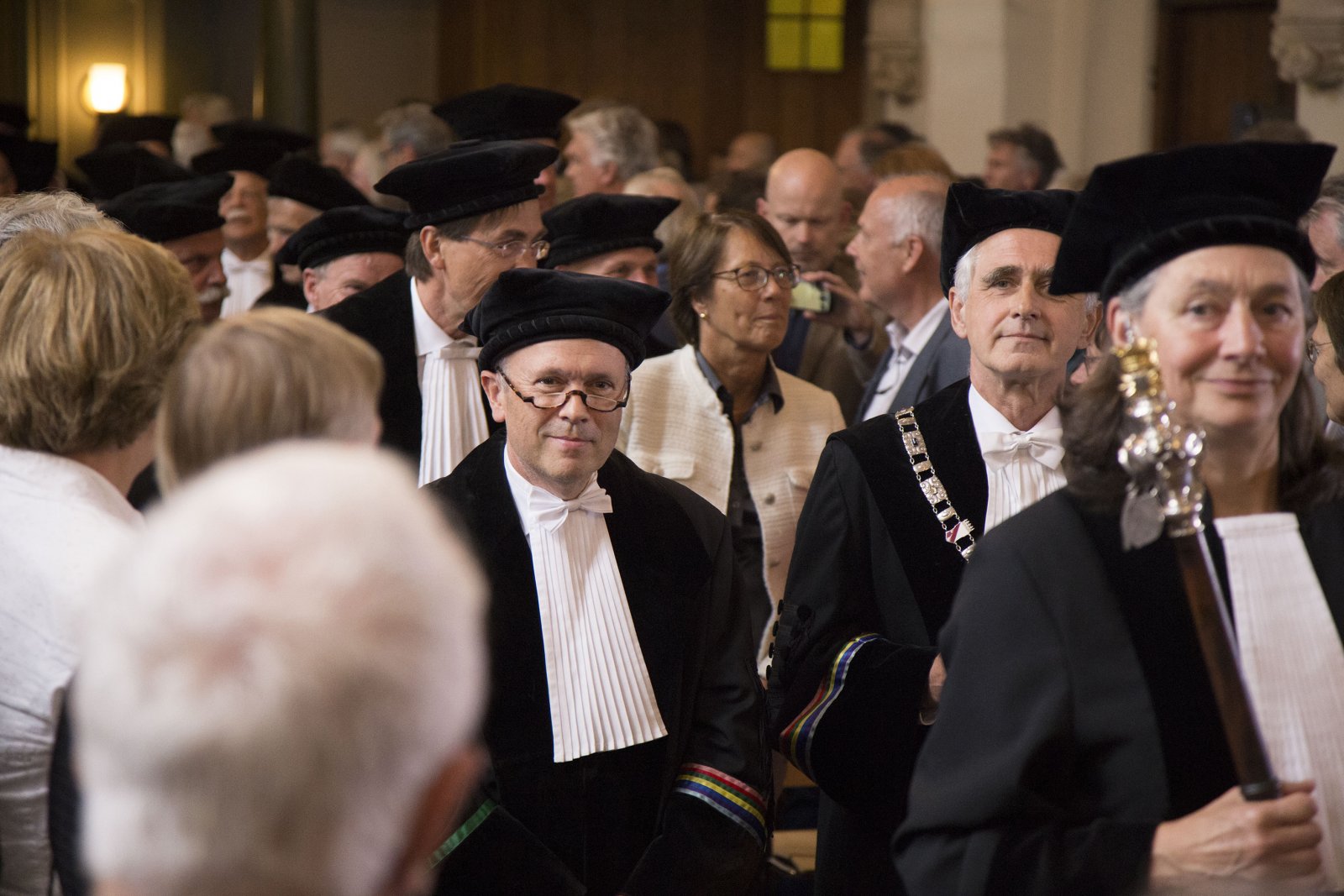
Education seminar May 23, 2013
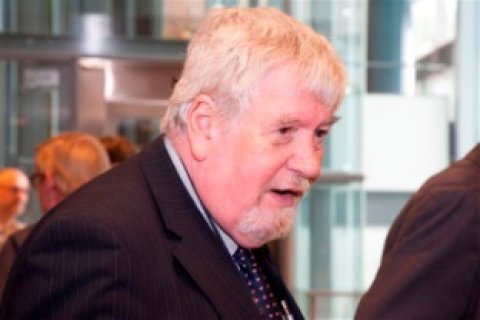
May 23, 2013 more than 60 teachers and other staff members participated in the third biannual education seminar organised by the Graduate School of Life Sciences. The seminar was opened by prof. Jan-Willem Lammers after which Prof. Bär, chair of the GSLS, gave a historical overview on the Graduate School activities and achievements.
The theme of this edition ‘Assessing to learn and learning to assess’ was kicked off by key lecturer Dr. Phil Race, who gave an inspiring talk on making assessment valid and involving students in their own assessment.
After the key lecture the participants could choose to take part in different workshops on feedback in interaction, visual literacy, rubrics or towards assessment AS learning.
The seminar was closed with an award ceremony for the best Master’s and best PhD course. Both courses were nominated and selected by the Life Science Representatives (LSR) and GSLS PhD council, respectively. Prof. Suzanne Lens and Prof. Geert Kops obtain the award for best Master’s course for ‘Chromosome segregation, aneuploidy and cancer’ from the Master’s programme Cancer, Genomics and Developmental Biology. The introduction course of the Institute of Biomembranes coordinated by Dr. Willie Geerts was awarded as best PhD course.
